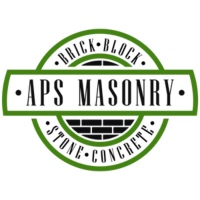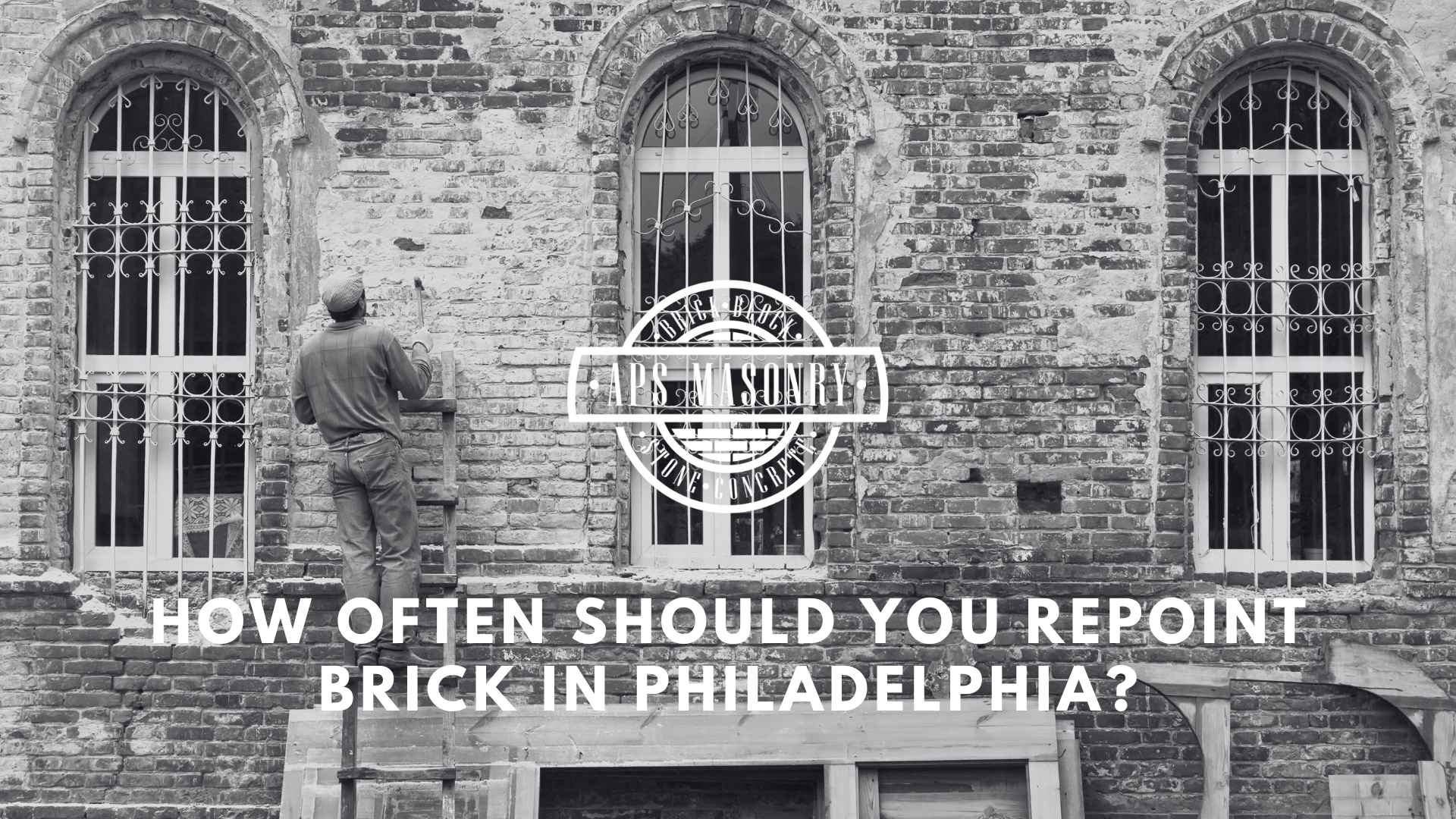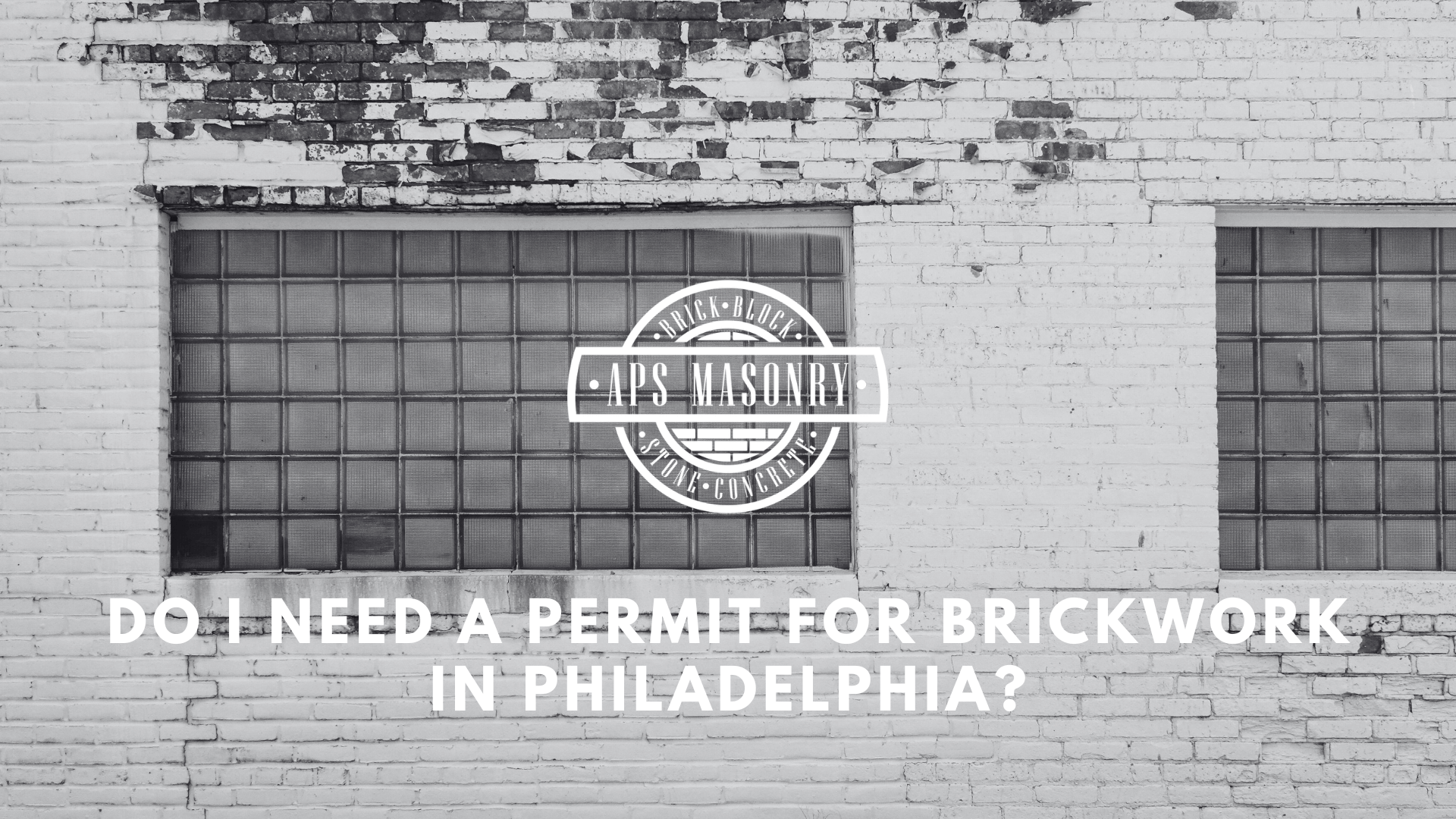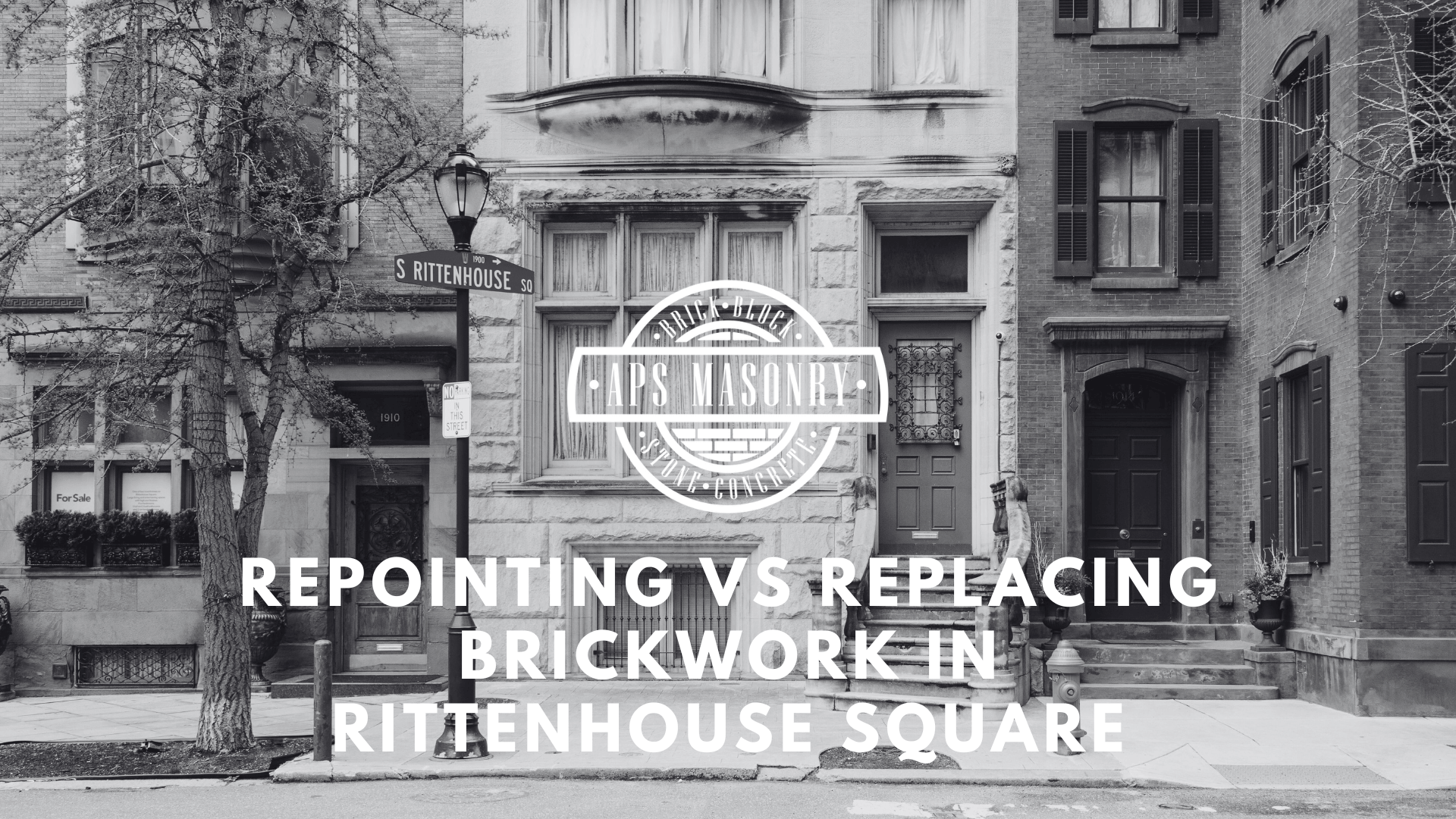Do I Need a Permit for Brickwork in Philadelphia?
Avoid fines, delays, and red tape—APS Masonry Contracting handles your Philadelphia brickwork permits so you don’t have to.
5 min read
 Alec Serowatka
:
Jul 9, 2025 7:13:56 AM
Alec Serowatka
:
Jul 9, 2025 7:13:56 AM

Philadelphia’s climate doesn’t forgive neglect—stay ahead of crumbling mortar and protect your brickwork before it becomes a costly structural problem.
Philadelphia’s masonry tells a story—but if you ignore it too long, it starts falling apart. From rowhomes in South Philly to stone facades in Chestnut Hill, aging brickwork is everywhere—and most of it is overdue for attention. Mortar doesn’t last forever. Between moisture, salt, shifting temperatures, and decades of settling, brick or stone structures in this city face relentless wear. What starts as a bit of cracking or discoloration often turns into serious structural failure. That’s why knowing when to repoint is a matter of preserving the bones of your home.
At APS Masonry Contracting, we help property owners maintain their buildings with strategic repointing that preserves both appearance and integrity.
For most properties, repointing brick is recommended every 20 to 30 years—but Philadelphia is a different story. In this city, repointing work is often needed every 15 to 20 years due to a combination of weather, age, and incompatible repairs. The older the brick buildings, the more critical it becomes to assess the condition of mortar joints and respond before mortar deterioration leads to structural concerns.
Philadelphia’s aging brick or stone housing stock—especially in neighborhoods filled with historic buildings—is particularly vulnerable to moisture intrusion, freeze-thaw expansion, and failed repairs using the wrong mortar. Many older buildings were constructed using lime mortar, which allows flexibility and breathability. However, past attempts to repoint with hard cement-based new mortar often trap moisture and damage the original brick. The result: crumbling mortar, flaking surfaces, and ultimately, a breakdown of brick walls and structure.
If your home still contains original mortar, or if prior work used a mismatched mortar mix, your timeline for brick repointing shortens dramatically. Routine inspections by qualified contractors can catch failing mortar joints before the damage escalates.
Timely repointing is a cosmetic issue and an important maintenance task that protects both the look and longevity of your brick home.
Several factors accelerate mortar deterioration in Philadelphia, making repointing brick more frequent than national averages. The city’s climate is a major contributor—regular freeze-thaw cycles cause expansion and contraction that weakens mortar joints over time. Moisture from rain and humidity gets into brick or stone, leading to surface decay and separation of the existing mortar.
Pollution and road salt—common in urban environments—also damage brick walls, especially on lower elevations near sidewalks. In older buildings, original lime mortar may still be present. When past repairs were done with harder new mortar or Portland cement-based mixes, those materials often failed to flex and breathe properly. This mismatch traps moisture and leads to premature cracking and flaking in both the mortar and the brickwork itself.
The use of the wrong mortar is one of the most common causes of early failure. Proper maintenance starts with choosing the right mortar mix, applying it with correct technique, and inspecting high-risk areas like chimneys, parapets, and garden walls. Identifying issues early allows for a simple repointing project instead of a full-scale brick repair.
Delaying repointing can lead to far more than surface damage. Once brick joints begin to open and deteriorated mortar flakes out, moisture starts to travel deeper into the wall system. In Philadelphia’s dense rowhomes and older stone buildings, this often results in hidden water intrusion, compromised insulation, and costly structural problems.
Loose bricks are one of the earliest and most visible warning signs. When old mortar loses its bond, bricks shift under their own weight, weakening the wall’s structural integrity. In stone walls, this shifting can lead to misalignment or bulging—especially where historic masonry was built with flexible materials like lime mortar but later patched with incompatible cement.
Quick fixes often make things worse. Applying excess mortar or the wrong blend to damaged joints traps water and accelerates decay. Proper repointing doesn’t just fill gaps—it removes failing material, matches the original look, and restores cohesion to the entire structure.
Skilled masonry contractors understand the subtle differences between surface wear and deep structural breakdown. When signs of failure appear, fast intervention can save original materials, protect nearby elements, and preserve the full integrity of your brick or stone wall.
Not all damage is obvious, but several clear signs indicate it’s time to consider professional repointing. A thorough inspection of your brick walls or stone exterior often reveals early-stage issues long before major structural damage occurs.
Watch for these signs that it’s time to book a repointing job:
Loose particles or sand-like debris falling from walls or window sills
Dark, receding, or cracked existing joints—especially horizontal ones
Patches where mortar dries unevenly, turns powdery, or absorbs moisture faster than surrounding areas
Cracks that widen after rain or temperature swings
Bricks pulling away from mortar or visibly shifting from position
Evidence of failed patches where prior attempts didn’t remove mortar cleanly or used mismatched material
Inconsistent or sloppy mortar colors that don’t match the original tone of the wall
Surfaces where the repaired joints are bulging or protruding from excess mortar
Previous repointing done with materials too hard or brittle, lacking the flexibility of traditional lime putty
Repairs that don’t match the desired consistency of surrounding lime mortar, making them prone to failure
If any of these issues show up in your home, it's time to talk to a specialist. High-quality repointing services focus on long-term performance and preservation—not quick cosmetic fixes. APS is here for you!
In Philadelphia, preserving historic masonry means more than patching cracks—it requires a clear understanding of how these buildings were constructed and how they perform over time. Many older homes and rowhouses were built with softer materials and carefully tooled horizontal joints designed to flex and manage moisture. Using the wrong new material in these joints can create long-term structural issues, especially when harsh weather conditions stress the wall system.
A common mistake in rushed repointing is the use of power tools or aggressive cleaning methods like acid wash, which damage both the original construction and surrounding brick faces. This kind of shortcut strips away character and weakens the bond between old and new mortar. Matching the performance and look of historic joints isn’t just about tradition—it’s what keeps the wall breathing, draining, and holding together.
Most masons trained in modern practices don’t repair these walls the same way they were built, which often results in mismatched profiles, improper finishes, and surface bulges. Proper repointing takes longer—especially on larger projects—but it’s essential for doing the job right. Skilled contractors use hand tools and custom mortar mixes to recreate the original profile, depth, and color with the desired consistency. It’s a time consuming process, but one that delivers lasting results.
Getting it right also means keeping your property visually appealing. The mortar lines shape the appearance of the entire façade. Discolored patches, uneven fills, or overly thick joints can distract from the brickwork and signal a lack of care. On historic blocks, these mismatches can even reduce resale value.
Above all, following a schedule of regular maintenance is the most cost effective way to avoid emergency repairs. Spotting the telltale signs early—cracks, separation, discoloration—gives you time to intervene before the wall fails. In a city built on brick and stone, matching your mortar type is more than a technicality. It’s a commitment to preserving what Philadelphia was built on.
Don’t wait until loose bricks, water damage, or structural issues force an emergency repair. APS Masonry Contracting provides expert repointing services that protect your home’s integrity and preserve its original character.
We match mortar types, restore failing joints, and deliver clean, lasting results—whether you’re maintaining a classic rowhome or caring for a historic stone property. Schedule a professional assessment today and keep your masonry sound for decades to come.

Avoid fines, delays, and red tape—APS Masonry Contracting handles your Philadelphia brickwork permits so you don’t have to.

That beautiful brick façade isn't going to fix itself; our Philadelphia masonry team is ready to restore your house, one joint at a time.